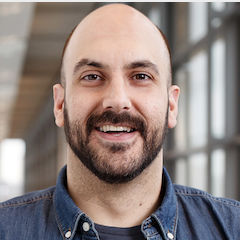CRISPR genome engineering for cellular modelling and screening 2024
7–11 October 2024
Wellcome Genome Campus, Hinxton, UK
New programme of virtual and in-person courses on CRISPR and related technologies
Course Summary
CRISPR/Cas-based and related gene editing technologies have made it possible for many laboratories to perform genome editing with relative ease. These tools have helped to provide valuable information regarding genetic interactions and in the advancement of gene therapy in precision medicine.
This new suite of virtual and lab-based training courses offers participants the opportunity to delve deeper into the complexities of genetic engineering by providing a comprehensive overview of the theory and practical laboratory skills required for the genetic manipulation of mammalian cells for cellular modelling and screening. The courses will each be focused on a particular learning outcome: (1) Genome Informatics and Computational Design and Analysis (2) Cellular Generation and Modelling and (3) Pooled and Arrayed Genetic Screening. Each course will consist of interactive practicals, demonstrations, discussion sessions, and lectures by international experts.
Applications for 2024 are open for Genome Informatics and Computational Design and Analysis (virtual course 7-11 October) and Cellular Generation and Modelling (in-person course 4-8 November).
All applicants selected for the Cellular Generation and Modelling course will be expected to participate in the virtual analysis course as well. Those who are not selected will be offered places in the virtual course.
Applications for 2025 Genome Informatics and Computational Design and Analysis (virtual course) and Pooled and Arrayed Genetic Screening (in-person course) will open in January 2025.
Target Audience:
This course is targeted at postdoctoral scientists, advanced PhD students actively engaged in or soon to commence relevant research. It is also suitable for facility managers and principal investigators wishing to bring the latest genetic modification technologies into their facilities or groups.
Please note: All applicants selected for the Cellular Generation and Modelling course will be expected to participate in the virtual analysis course as well. Those who are not selected will be offered places in the virtual course.
Programme
The courses will cover topics including:
CRISPR: Genome Informatics and Computational Design and Analysis
- Fundamentals of CRISPR
- Experimental and library design
- Gene editing
- Therapeutic genome editing
- Quality control for generated cellular models
CRISPR: Cellular Generation and Modelling
- IPSC culture and cloning
- Gene editing
- Genotype and clone characterisation
- Differentiation
CRISPR: Pooled and Arrayed Genetic Screening
- Library generation
- High-throughput screening arrays
- High-throughput editing efficiency
- Pooled screening
Learning Outcomes
CRISPR: Genome Informatics and Computational Design and Analysis
- Design genetic engineering strategies for generating cellular models, including choice of different methodologies (HDR, KO, conditional, prime or base editing) and validation strategies
- Gain an in depth understanding of CRISPR-based genetic screening methods, including design, reagents and techniques including their advantages and limitations
CRISPR: Cellular Generation and Modelling
- Undertake genome editing and cellular modelling with diverse cellular models, including manipulation of cells, generation and delivery of reagents, and isolation and analysis of clones.
CRISPR: Pooled and Arrayed Genetic Screening
- Design and execute CRISPR based genetic screening approaches in both pooled and arrayed formats including experimental design and analysis.
Organisers and speakers
Organisers

Matthew Coelho
Wellcome Sanger Institute, UK

Kalpana Surendranath
University of Westminster, UK

Andrew Bassett
Wellcome Sanger Institute, UK

Nneka Anyanwu
Wellcome Sanger Institute, UK

Panos Zalmas
Open Targets, UK
How to apply
Prerequisites
This course is targeted at postdoctoral scientists, advanced PhD students actively engaged in or soon to commence relevant research. It is also suitable for facility managers and principal investigators wishing to bring the latest genetic modification technologies into their facilities or groups.
Please note: All applicants selected for the Cellular Generation and Modelling course will be expected to participate in the virtual analysis course as well. Those who are not selected will be offered places in the virtual course.
How to apply
- Start the application
- Click on the “Apply” button above to start your application. Please note that places are limited and will be awarded based on merit.
- Demonstrate the course’s relevance to your project
- Our training courses are highly subscribed, so it is essential to clearly show how the skills you will learn in the course will be directly applicable and beneficial to your current role/project. Highlight how these skills will enhance your work or research. Preference will be given to applicants who are currently working on related projects or soon will be.
- Please indicate whether you are applying for the informatics course or for the lab course
- Letter of recommendation
- Applications must be supported by a recommendation from a scientific or clinical sponsor (e.g., supervisor, line manager, or head of department). Ensure that your sponsor provides a tailored supporting statement by the application deadline. This statement must be uploaded as a PDF document to the registration system within your application. Applications without a supporting statement will not be considered.
- Need help?
- If you encounter any problems with the online application process, please contact us for assistance.
Cost and financial assistance
| Course | Cost* |
| Virtual course only | £250 |
| In-person Laboratory course (virtual course included) | £1,062 |
*The course fee is subsidised by Wellcome Connecting Science and applies to non-commercial applicants. Please contact us for the commercial fee.
The fee for the in-person course includes meals and accommodation.
Bursaries
Limited bursaries are available (up to 50% reduction on the course fee) and are awarded on merit. If you would like to apply for a bursary, please complete the bursary section of the online application form.
Where there are many bursary applications, the selection committee may issue smaller amounts.
Bursaries can be applied for as part of the course application form. Applicants will be notified of a bursary award along with their place on the course, usually within one month of the application deadline. The decision of the selection committee is final.
Please note that both the applicant and sponsor are required to provide a justification for the bursary as part of the application.
Additional funding opportunities
Visit our support page for additional financial support currently available.
Accommodation services phishing scam – please be vigilant. More information.
Sponsors
If you are interested in supporting this meeting, please contact the conference organiser.
Testimonials
Testimonial from Genetic Engineering of Mammalian Stem Cells 2022
What was the best part/aspect of the course?
“The people – both the instructors and the participants were some of the friendliest and approachable people I have met. I felt able to ask any questions I had and hearing about allthe interesting projects was brilliant. I hope very much to connect with them again in the future.Also, the enthusiasm for the science was contagious and I have left with so many ideas and much excitement for my work.”

